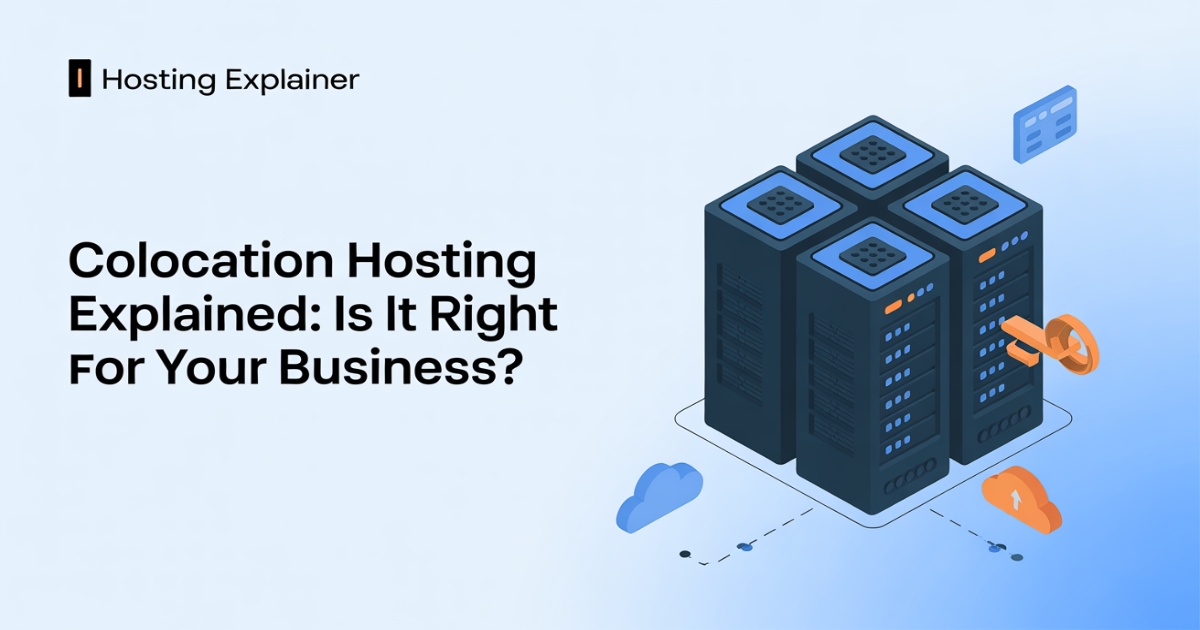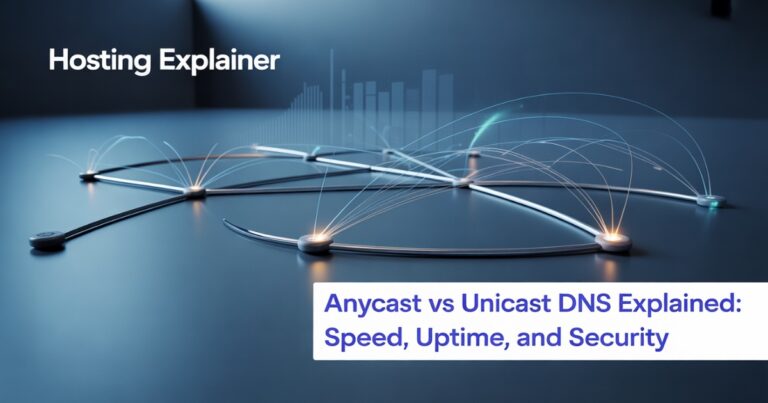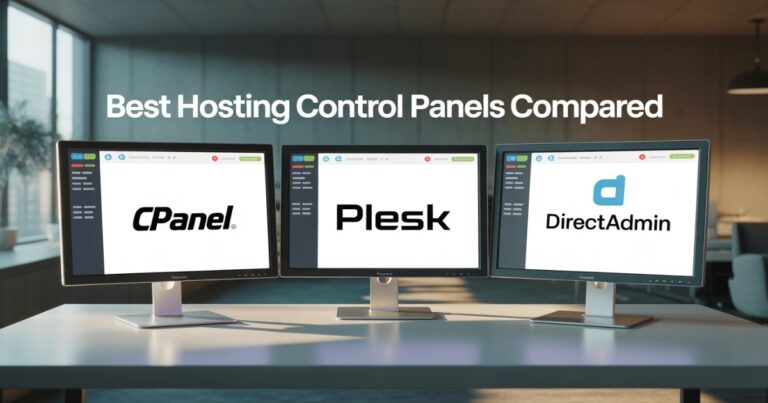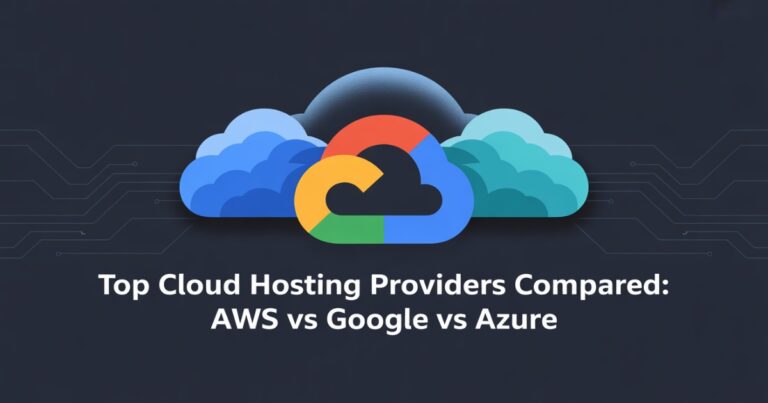Colocation Hosting Explained: Is It Right for Your Business?
When I first heard the term “colocation hosting,” I thought it was another buzzword in the web hosting world.
But when I looked into it, I realized it was a practical solution many companies rely on. If you’ve ever wondered whether colocation hosting is the right fit for your business, this guide will explain it step by step, using plain English.
What Is Colocation Hosting?
Colocation hosting means you own the server but place it in a professional colocation data center. Instead of storing it in your office, you rent secure space in a facility designed for servers.
Think of it like renting an apartment for your equipment. You still own the furniture (the server), but the building manager provides electricity, internet, cooling, and security.
In short: colocation hosting = your servers, their data center. This setup is popular with companies that want both control and reliability.
How Does Colocation Hosting Work?
Here’s how it works in practice:
- You buy and set up your own servers.
- You transport them to a colocation data center.
- The provider gives you rack space, power, cooling, and high-speed internet.
The result? Your servers run in a professional environment with data center reliability and uptime you probably can’t achieve in-house.
Most centers also offer “remote hands,” which means on-site technicians handle small tasks like reboots, cable checks, or replacing drives. This is helpful if your IT team isn’t nearby.

Benefits of Colocation Hosting for Businesses
We’ve covered the basics. Now let’s see why colocation hosting appeals to so many companies.
1. Improved Security and Compliance
Colocation centers provide strict security and compliance standards. Expect:
- 24/7 monitoring and surveillance.
- Biometric or card-based access.
- Fire detection and suppression.
- Compliance with ISO, SOC 2, HIPAA, or PCI standards.
This level of security is hard to achieve if you’re running servers in a back office. For industries like healthcare, banking, or e-commerce, compliance can be a deal-breaker.
2. Scalability and Flexibility
As your business grows, so do your hardware needs. With colocation, scaling up is simple: you just rent extra rack units, cabinets, or cages.
Unlike cloud hosting, where costs increase with usage, colocation gives predictable growth. You own the servers and expand space as needed.
3. Cost Efficiency in the Long Run
The upfront cost is higher because you buy the servers yourself. But over time, colocation hosting costs may work out cheaper than dedicated or cloud hosting, especially for businesses with steady demand.
Think of it like buying instead of renting a house. The first investment is big, but you save long-term if you stay put.
4. Business Continuity and Reliability
One of the biggest perks is business continuity. Colocation data centers have backup power generators, redundant cooling systems, and disaster recovery plans. Even during local outages, your servers keep running.
For businesses where downtime means lost revenue, colocation provides peace of mind.
Colocation Hosting vs. Other Hosting Options
Let’s compare colocation hosting with alternatives.
1. Colocation Hosting vs. Dedicated Server
A dedicated server is hardware you rent from a hosting provider. You don’t own it, and when you stop paying, you lose access. With colocation hosting, you own the hardware.
Dedicated hosting is easier upfront but offers less control in the long run.
2. Colocation Hosting vs. Cloud Hosting
Cloud hosting is flexible and great for scaling quickly. You don’t manage hardware at all. But colocation offers stronger control, predictable costs, and direct access to physical servers.
Many companies even use a hybrid approach: critical workloads on colocated servers, less sensitive ones on the cloud.
3. Colocation Hosting vs. On-Premises Servers
Running servers in your own office sounds convenient, but you’ll face high power bills, cooling needs, and security challenges. Colocation vs. on-premises? Colocation usually wins because you get enterprise-level infrastructure without building your own data center.
Who Should Consider Colocation Hosting?
Colocation isn’t one-size-fits-all. Here’s who it suits best:
- Enterprises with mission-critical workloads that demand uptime.
- Startups planning to scale but without resources to build a private data center.
- Industries with compliance needs, like finance or healthcare.
- Small businesses with in-house IT teams but no space for servers.
If your business values uptime, compliance, and control, colocation is worth serious thought.
Key Features to Look for in a Colocation Provider
Not all providers are equal. When comparing, check:
- Location: Is the data center close enough for your team to visit?
- Uptime SLA: Look for 99.9% or higher.
- Network connectivity: Redundant internet carriers for reliability.
- Power redundancy: Backup generators, UPS systems.
- Cooling systems: N+1 or 2N designs for resilience.
- Security certifications: ISO, SOC 2, PCI DSS, HIPAA.
- Support services: Options like managed colocation or hybrid colocation solutions.
These details separate a reliable provider from one that could put your business at risk.
Challenges and Drawbacks of Colocation Hosting
It’s not all sunshine. Here are the main challenges.
- High upfront costs: You must buy and maintain your servers.
- Technical expertise required: Your team handles upgrades, patches, and failures.
- Limited physical access: You may need to schedule visits with the provider.
- Ongoing monthly fees: Rent, bandwidth, and power bills add up.
That said, many businesses accept these trade-offs for the long-term reliability and control.
How Much Does Colocation Hosting Cost?
Costs vary widely by provider and location. Here’s a breakdown:
- Rack space: Often priced per “U” (rack unit). A small setup may need only 1–2U, while enterprises rent full racks or cages.
- Bandwidth: Internet use, billed monthly.
- Power: Measured by kilowatt usage.
- Extras: Security, “remote hands,” monitoring, or disaster recovery services.
A small business setup can cost $100–$300 per month. Larger enterprises may pay thousands monthly depending on power and space needs.
Here’s a quick comparison:
| Hosting Type | Who Owns Hardware | Cost Style | Best For |
| Colocation Hosting | You | Upfront + monthly | Control + reliability |
| Dedicated Hosting | Provider | Monthly rental | Simplicity + no hardware buying |
| Cloud Hosting | Provider | Pay-as-you-go | Flexibility + quick scaling |
This table makes it easier to weigh costs against control.
Final Verdict: Is Colocation Hosting Right for Your Business?
Let’s sum it up.
- Choose colocation hosting if you want full control of hardware, high uptime, and compliance support.
- Choose cloud hosting if you need instant scaling and don’t want hardware.
- Choose dedicated hosting if you prefer simplicity and a monthly rental model.
In my view, colocation hosting is worth it for businesses with IT expertise that want control without building a private data center. For companies without an IT team, cloud or managed hosting may be easier.
FAQs About Colocation Hosting
1. What is colocation hosting in simple terms?
It’s when you place your own servers in a professional data center that provides space, power, internet, and security.
2. Who needs colocation hosting the most?
Businesses that need strong uptime, compliance, and direct control over hardware.
3. Is colocation hosting better than cloud hosting?
Not always. Cloud is better for quick scaling and low entry costs. Colocation is better for predictable performance and control.
4. How much does colocation hosting cost per month?
Anywhere from $100 for small setups to thousands for enterprise deployments, depending on rack space and power needs.
5. What are the disadvantages of colocation hosting?
High upfront costs, ongoing fees, need for technical staff, and less physical access than in-house servers.
Is Colocation Hosting the Right Fit for Your Business?
Colocation hosting isn’t the cheapest or simplest option, but for the right businesses, it’s powerful. It blends the control of owning servers with the reliability of professional data centers.
If your company values uptime, compliance, and long-term savings, colocation hosting could be exactly what you need. It’s especially useful for organizations that want scalability without losing physical control of their hardware.
While it requires careful planning and budgeting, the payoff can be significant in terms of performance, security, and operational stability.






